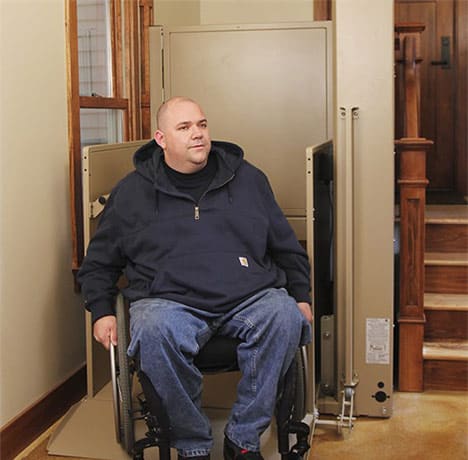It makes sense that a lack of activity can have health repercussions, but do you realize the severity of these consequences? Increased activity and movement has distinct benefits and using mobility aids makes this possible for many with limitations or disabilities.
You may be aware that activity, movement, and exercise lead to good health, but are you aware of the negative consequences of inactivity? Individuals with limited mobility face distinct health challenges as a lack of activity may lead to exacerbated health conditions, which further impedes wellbeing and quality of life. One way to combat this is through an expanded range of motion and movement with mobility aids, tools, and devices intended to increase activity, and subsequently, overall quality of life.
The repercussions of immobility are severe; increasing activity with mobility aids may increase holistic health:
Chronic Pain
Immobility actually worsens chronic pain but movement may aggravate pain. In most instances, pain may subside with gradual, low-impact activity but know that the temporary pain is worth enduring for the numerous benefits mentioned below.
Stomach Issues
Immobility is going to cause gastro issues, including heartburn, aspiration, and gas. Sitting upright during and after meals is key for digestion; this may not be feasible for those with mobility issues. Depending on the extent of the physical disability, it may be more difficult to have regular bowel movements which can contribute to nausea, vomiting, and constipation.
Urination and Elimination
When it comes to relieving one’s self, how you are positioned is key. It may be difficult to fully empty the bladder in some situations. When urine pools in the bladder, it can cause issues including infection.
Skin Sores
When it comes to inactivity or immobility, skin sores pose a very dangerous health risk. Pressure of any kind increases the chance of getting ulcers which, when infected, can contribute to illness, infection, and even death. It is important to change positions every ten minutes or so when healthy; those with mobility issues may rely on others for this shift in position. Sometimes even slight pressure from bedding or clothing can lead to abrasions and injuries that can become painful and infected.
Circulation
Naturally, inactivity leads to poor circulation and issues with the circulatory system, including edema, blood clots, and vertigo. This increases pressure on the heart, which may lead to fatal conditions like heart disease and stroke.
Nutrition
When you are immobile, the way that your body utilizes food and nutrition changes. The body stores fats and sugar, which can lead to diabetic complications and endocrine system problems. Hormones and sodium levels may be off, too, when you don’t get enough physical activity regularly.
Muscles
With inactivity comes the breakdown of muscle and atrophy. Over time the pain and stiffness associated with using muscle groups for basic movements may further impede progress and facilitate issues with muscles. It is estimated that you lose around 10% of muscle strength for every week of inactivity and immobility, depending on various factors. Furthermore, immobility can cause painful cramps and contractures of underutilized muscles; many report these episodes to be painful enough to keep them awake at night.
Bones
Inactivity weakens the bones over time and causes the loss of Calcium from immobility. This lack of activity puts you at a much greater risk for developing Osteoporosis, which may contribute to breaks and fractures later- on.
Breathing
Immobility can make it harder to fully expand the lungs and take a breath. It is more difficult to have a productive cough that clears secretions from the lungs when you have mobility issues. Prolonged positioning may put pressure on the chest which impacts breathing.
Mood and Mental Health
Would you believe that increased activity is connected to your mood and mental wellbeing? It is and immobility can erode and deteriorate mental health conditions significantly. Some ways that inactivity impact mental health and wellbeing include:
- Hopelessness
- Anxiety
- Irritability
- Loss of autonomy and independence
- Restlessness or insomnia
- Apathy
- Lethargy
- Boredom
- Dementia
- Depression
- Mood lability
- Social isolation
- Disorientation
- Listlessness
- Withdrawal.
Inactivity and associated mood may contribute to addiction, also. Whether an individual begins to self-medicate or if relapse from old dependencies occurs, immobility makes the individual vulnerable to addictive behaviors.
Mobility aids facilitate movement and activity, which can lead to improved and increased holistic wellbeing. Visit vendors and talk to providers about the best aids and devices for your distinct situation, living environment, and lifestyle.
In Southern California, Pacific Mobility is the go-to expert for mobility aids. Reap the rewards of working with a family-owned and operated business that has been serving the mobility needs of clients in the Bay Area for over 60 years. Call for a free, no-obligation assessment today.
President, Husband, Father, Grandfather Graduate of UC Davis- Bio Sci Major- Go Aggies! Jeff has extensive experience in all of Pacific Mobility’s products and services, and specializes in accessibility products as well as stairlifts, ceiling lifts and custom wheel chairs. His hobbies include spending time with family, gardening, mountain biking, exercising and off road motorcycle riding.
24 years as Owner/President of Pacific Mobility Center – selling, installing, and servicing stairlifts, porch lifts, ceiling lifts, pool lifts, handicap ramping, specialty wheelchairs, scooters, power wheel chairs, and other power mobility devices
Certified Environmental Access Consultant since 2008
Licensed General Contractor since 1998
Certified Aging in Place Specialist since 2016
Board Member for Home Access Professionals
Member of Association of Members of the Accessibility Equipment Industry (AEMA)




